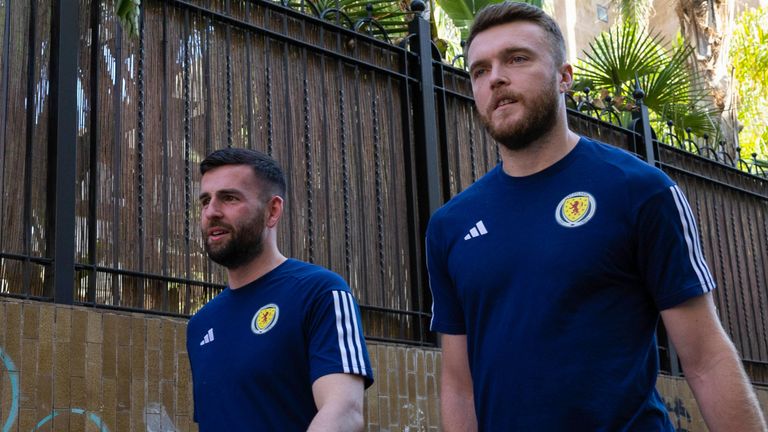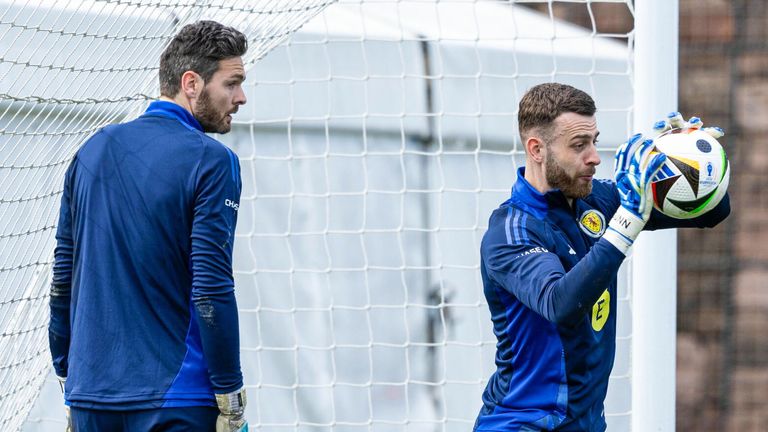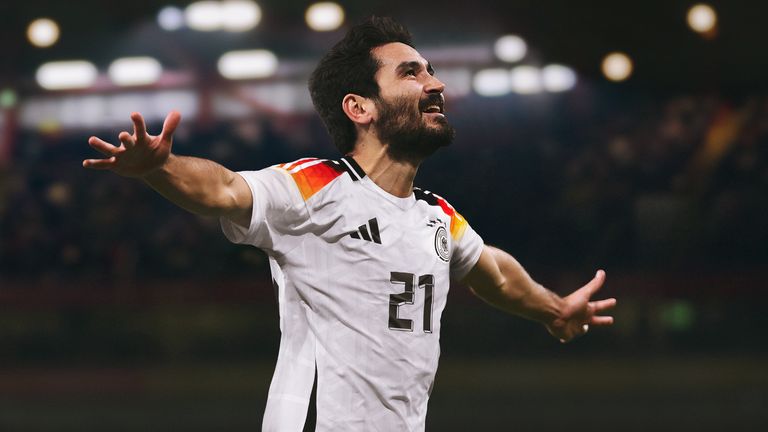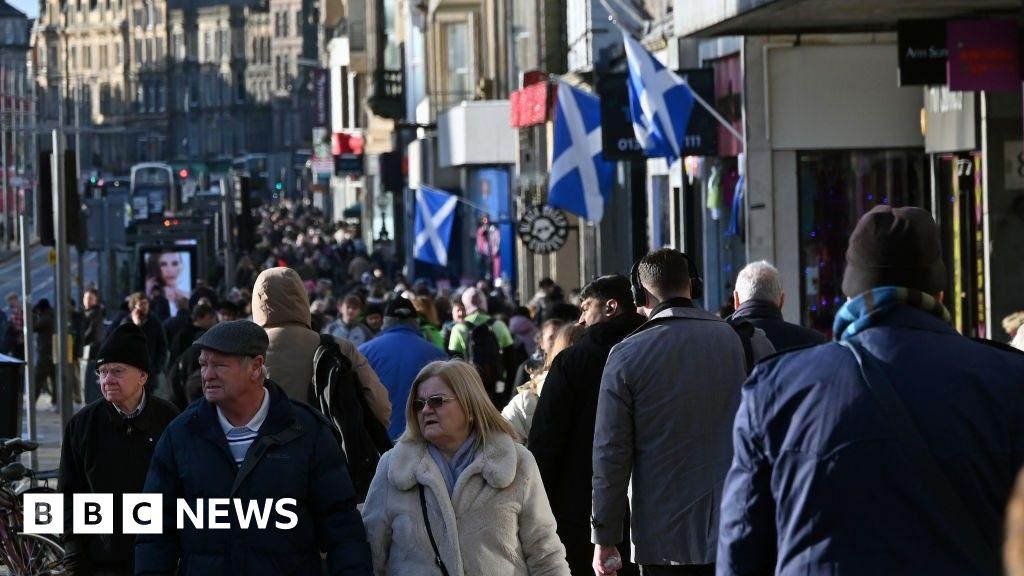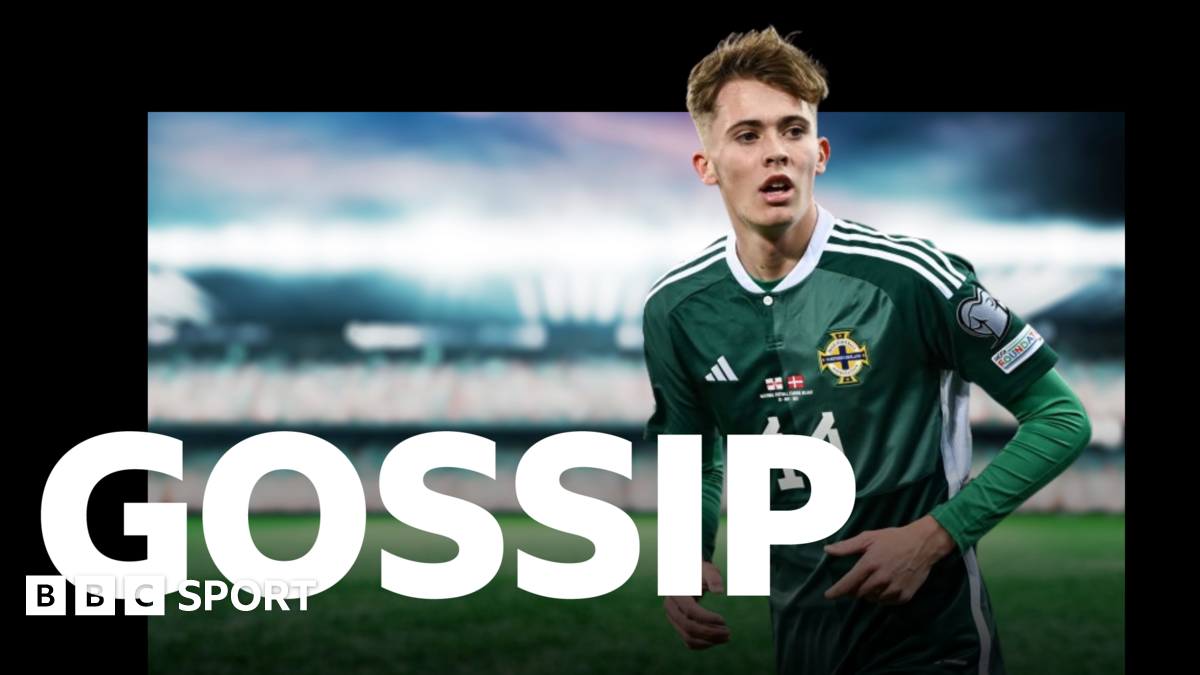Football
Steve Clarke exclusive: Scotland boss on Euro 2024, his four-year plan & more

Steve Clarke says his Scotland squad has been four years in the making as he refused to rule out taking four goalkeepers to Euro 2024.
The head coach has named a provisional 28-player squad which will be cut to 26 by June 7, two days before Scotland fly out to their training base in Germany.
Ben Doak, James Forrest and Ross McCrorie have been selected ahead of their final warm-up games against Gibraltar and Finland, with Craig Gordon, Ryan Jack and Anthony Ralston also included.
Clarke spoke to exclusively to Sky Sports’ Luke Shanley at Hampden Park, explaining his key decisions and Euro 2024 hopes…
LS: How hard have the last few months been, working out the team and then realising that you’re going to be able to pick three extra bodies as well?
Clarke: “Complicated. Working from the friendly games in March, we picked up significant injuries in unfortunately one position, where you lose your two first-choice right wing-backs. Going from 23 to 26 gives you more imponderables, gives you more in your head. I said to my wife last week, ‘my head’s like a tumble dryer’. I had so many things going through my head because you’re trying to cover every scenario, to look forward, to predict what’s going to happen in the future and you can’t do that. But hopefully I’ve got enough possibilities in there to cover as many outcomes as I can.”
LS: You’ve named a squad of 28. Have you got any others on standby?
Clarke: “No. The standby squad will be the U21s. There are some players in there who obviously were looked at and we thought about selection, it hasn’t happened for them yet. There’s still time before we name that final squad. There’s still one or two doubts in the 28 that I’ve got. There’s still games to be played so those boys should all turn up and do well for Scott [Gemmill] in the U21 games, because that would be the elongated squad, if you like. So that takes us up to close on 50 players.”
LS: Will you take four goalkeepers to the Euros or will be three?
Clarke: “In a 26-man squad, as long as I feel I’ve got enough cover for all the other positions, then it’s possible to take four goalkeepers. Logic behind it would say the No 3 goalkeeper or the one who becomes the third goalkeeper can get bombarded in training by doing too much so you can share the workload. I think Julian Nagelsmann [Germany manager] actually touched on that a little bit as well because it can be a hard life being the third goalkeeper and everybody wants to have a shooting session after training and you’re doing that for near on a month. It’s a lot of work for one guy to cover. So there is a case to take four, but there’s also a case to take three because maybe I have to cover more outfield positions and that will be one of the tough decisions.”
LS: How key is Craig Gordon’s experience in whether he makes the final squad or not?
Clarke: “It could be Ben Doak’s dad! That’s the age gap that we’ve got in the squad. For the goalkeepers, if you go with three goalkeepers at this stage and then you pick up a goalkeeping injury, you have a goalkeeper who hasn’t trained, who hasn’t worked. So they’ll all work together. Craig’s experience in and around the squad will be good, even just with a word in somebody’s ear. He’s been there, he knows the ropes. Over 70 caps for his country and, yes, it’s nice that he’s fit and involved.”
LS: Forties, 50s, 60s. In terms of caps, how big a boost is the vast experience you have in your squad?
Clarke: “That’s what we’ve been working towards. Probably about four years ago I decided that’s the way I was going to try and build a squad. They’ve got lots more caps; the more they’re capped, they’re more experienced at international level. They have the benefit of tournament experience, albeit Covid tournament experience, but they understand the format with the three games in a very short space of time. Three massive games in a very short space of time. So hopefully all that experience going into this tournament means that we can create a little bit of history for Scottish football this summer.”
LS: What have you made of the three teams we’re going to be coming up against?
Clarke: “They’re all good, but hopefully we can be as good as them. Germany, everybody keeps talking down, but for the life of me, I don’t see it. I see the squad, the players and their last two performances in the friendlies in March, and they look as though they’re going to peak at the right time for their home tournament. So that will be a good one to start with. Switzerland are perennial qualifiers and normally when they get to the group stages of a tournament, they come out of the group, they get to the knockout stages. Hungary, I feel a little bit like ourselves, play a similar system. It’s probably a nation that’s on the way up, also ranked above us in the FIFA world rankings, if that counts for anything at the moment. So we go in there as the fourth-ranked team in the group, but capable of giving a really good account of ourselves.”
LS: Do you think the Scotland fans’ expectations have gone up and is that a compliment?
Clarke: “Hopefully the expectations have gone up because otherwise you’re not improving. I feel we’ve improved over the last five years. It would be nice to prove it in the summer.”
Key dates ahead for Scotland
Monday June 3: Euro 2024 warm-up, Gibraltar vs Scotland at Estadio Algarve, Portugal; kick-off 5pm
Friday June 7: Euro 2024 warm-up, Scotland vs Finland at Hampden Park, Glasgow; kick-off 7.45pm
Friday June 7: Final 26-player squad submitted to UEFA by 11pm
Saturday June 8: Final 26-player squad announced
Sunday June 9: Scotland squad fly to base camp in the Bavarian resort of Garmisch-Partenkirchen
Scotland’s Euro 2024 schedule
Scotland have history kicking off tournaments, having been drawn to face Brazil in the opener at World Cup 1998, a game they narrowly lost 2-1 to a second-half Tom Boyd own goal.
This time around the venue is the Munich Football Arena [Allianz Arena] where Steve Clarke’s side kick-off the opening match of Euro 2024 against hosts Germany on June 14.
Scotland also face games against perennial qualifiers Switzerland in Cologne on June 19, with Hungary – who reached the knockouts in 2016 – awaiting in Stuttgart on June 23.

